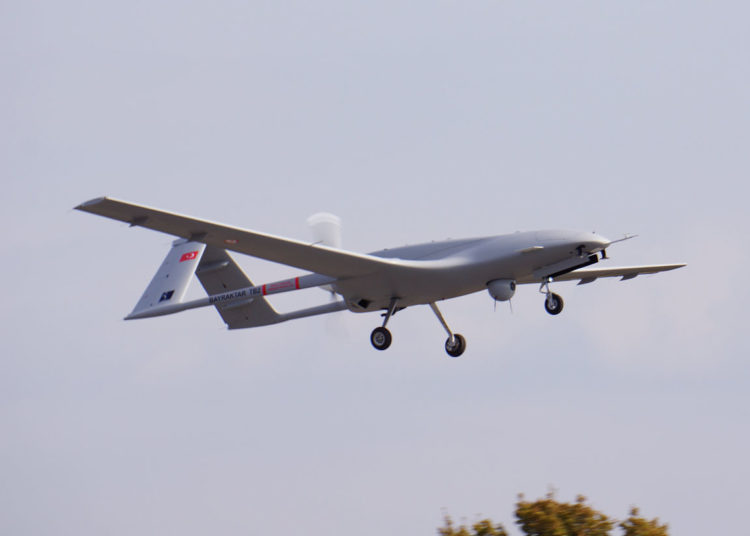Levent Kenez/Stockholm
Bosnia and Herzegovina’s Ministry of Defense is negotiating the purchase of six Bayraktar unmanned aerial vehicles (UAVs) from Turkish defense contractor Baykar, Bosnian and Turkish media reported last week. According to reports quoting Bosnian Defense Minister Zukan Helez, two teams are already in Turkey for training, and the purchase will include three ground command systems as well.
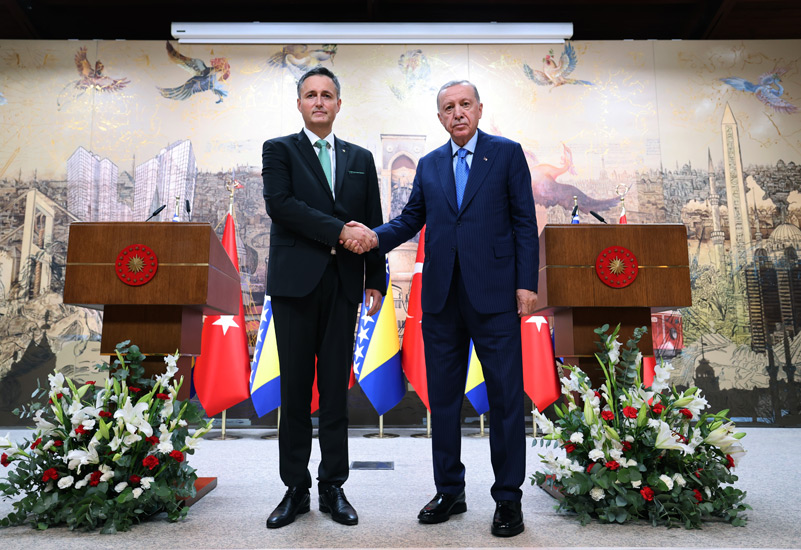
The news coincided with the visit of Bosnia and Herzegovina’s Presidential Council chairman, Denis Bećirović, to Turkish President Recep Tayyip Erdogan in Istanbul on Saturday. During a press conference following their meeting, Erdogan said cooperation in the military and security fields was a key topic of discussion. He emphasized that they particularly focused on ways to enhance collaboration in the defense industry.
If the sale goes through, Bosnia and Herzegovina will become the fourth country in the Balkans to use Turkish military drones. Romania, Kosovo and Albania had previously incorporated Bayraktar TB2 UAVs into their military inventories.
Serbia has expressed its unhappiness with Turkey’s sale of Bayraktar drones to Balkan countries. While Serbia had initially planned to purchase Bayraktar UAVs from Turkey, it announced in 2023 that it had abandoned the plan, although Turkish media reported that Turkey had refused to sell the drones to Serbia. However, Serbian President Aleksandar Vučić had stated in 2022 that Erdogan had promised to sell Bayraktar drones to Serbia. Serbia later explained that it had decided not to proceed with the purchase in protest of Turkey’s sale of Bayraktar UAVs to its contentious neighbor, Kosovo.
Kosovo, which declared independence from Serbia in 2008 without universal recognition, reportedly aims to establish a military force consisting of 5,000 regular soldiers and 3,000 reservists. This force would complement the existing 4,500 NATO peacekeepers in the country.
Since 2020 Serbia has been using Chinese-made CH-92A armed drones.
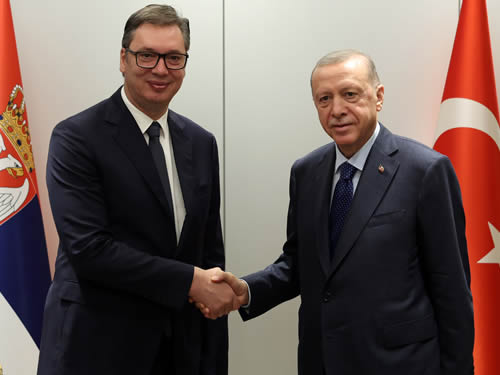
However, there was a close dialogue between Turkey and Serbia several years ago. In 2019 Turkey and Serbia signed a military framework agreement, which Serbia ratified in 2020 and Turkey approved in 2022. The agreement, allowing for joint military exercises and training, was defended by Turkish officials as being more comprehensive than a previous deal from 2004. It is possible that the Erdogan government postponed or canceled the sale of UAVs to Serbia due to concerns that the opposition might use it against them during the elections in 2023.
However, Turkey’s sale of drones to Kosovo led to a deterioration in its relations with Serbia. The move heightened tensions as Serbia viewed the sale as a challenge to its interests in the region.
On July 16, 2023 Kosovar Prime Minister Albin Kurti announced that the Bayraktar TB2 drones purchased from Turkey had arrived in the country. Kurti shared a photo of the Bayraktar TB2 on his social media account, captioning it, “Kosovo is now even more secure.” While Kurti did not disclose the number of drones acquired, Turkish media reported that Kosovo had purchased five and that military personnel had previously undergone training for their use.
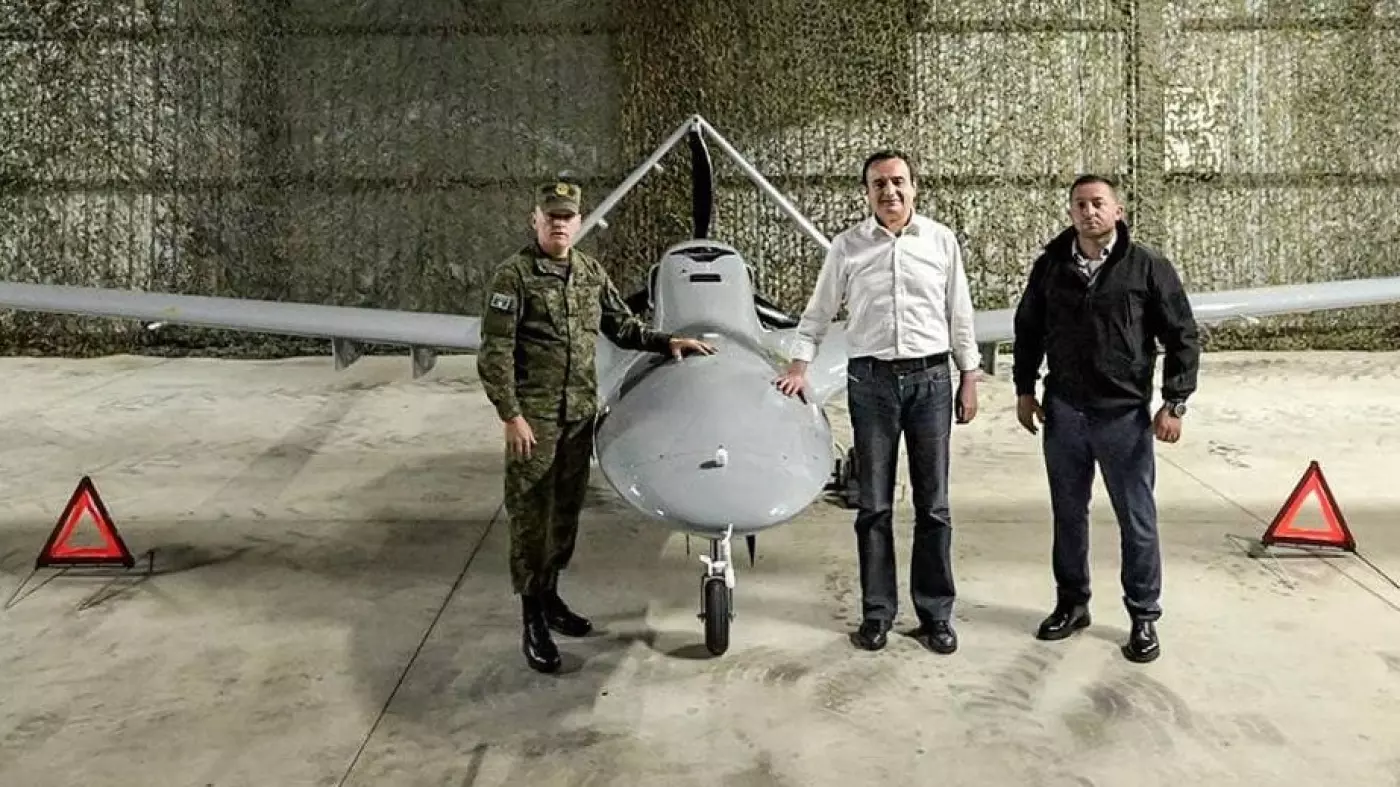
Additionally, Turkey and Kosovo signed a military framework agreement on January 29, 2024. The agreement focuses on enhancing military cooperation, including increased arms sales, joint military exercises and the training of military personnel. It also involves sharing military intelligence, logistical support and resources, either as grants or through payment, while ensuring the protection of classified information and property rights.
Serbian President Vučić recently told journalists following the “Fire Attack 2024” military exercise conducted by the Serbian army that Bayraktar TB2 UAVs, which Kosovo acquired last year, flew near Serbia on June 5 and 20. He alleged that these UAVs were used to monitor Serbian military capabilities and said, “We observed them closely; at another time, they would not have remained in the air for long.”
Vučić also mentioned that the flights occurred in an area under the control of NATO’s Peacekeeping Force in Kosovo (KFOR) and said Serbia respects KFOR’s control. Despite this, he claimed that the UAVs’ presence was intended to broadly monitor Serbia’s military capabilities but did not pose a direct security threat.
In response, Kosovar Defense Minister Ejup Maqedonci denied the allegations, stating that Vučić’s claims were unfounded.
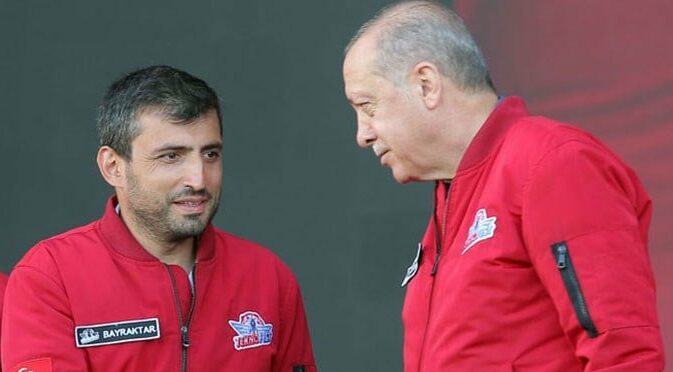
As a side note, Selçuk Bayraktar, one of the owners of Baykar, the company that manufactures Bayraktar drones, is Erdogan’s son-in-law. Erdogan views Baykar as a family business and markets its products in many countries, especially in Africa. It is well known that Erdogan, his family members and his business associates benefit significantly from the defense industry and military equipment sales. Baykar leverages state resources and earns substantial profits in both local and international markets through weapons sales, for which Erdogan is the sole decision-maker. One key reason for choosing Turkish drones is that Turkey has a shorter export approval process compared to the US and the European Union. Selçuk Bayraktar and his brother Haluk recently appeared on Forbes’ latest billionaire list.
In August Selçuk Bayraktar shared posts on social media about a visit to Bosnia with his family.

